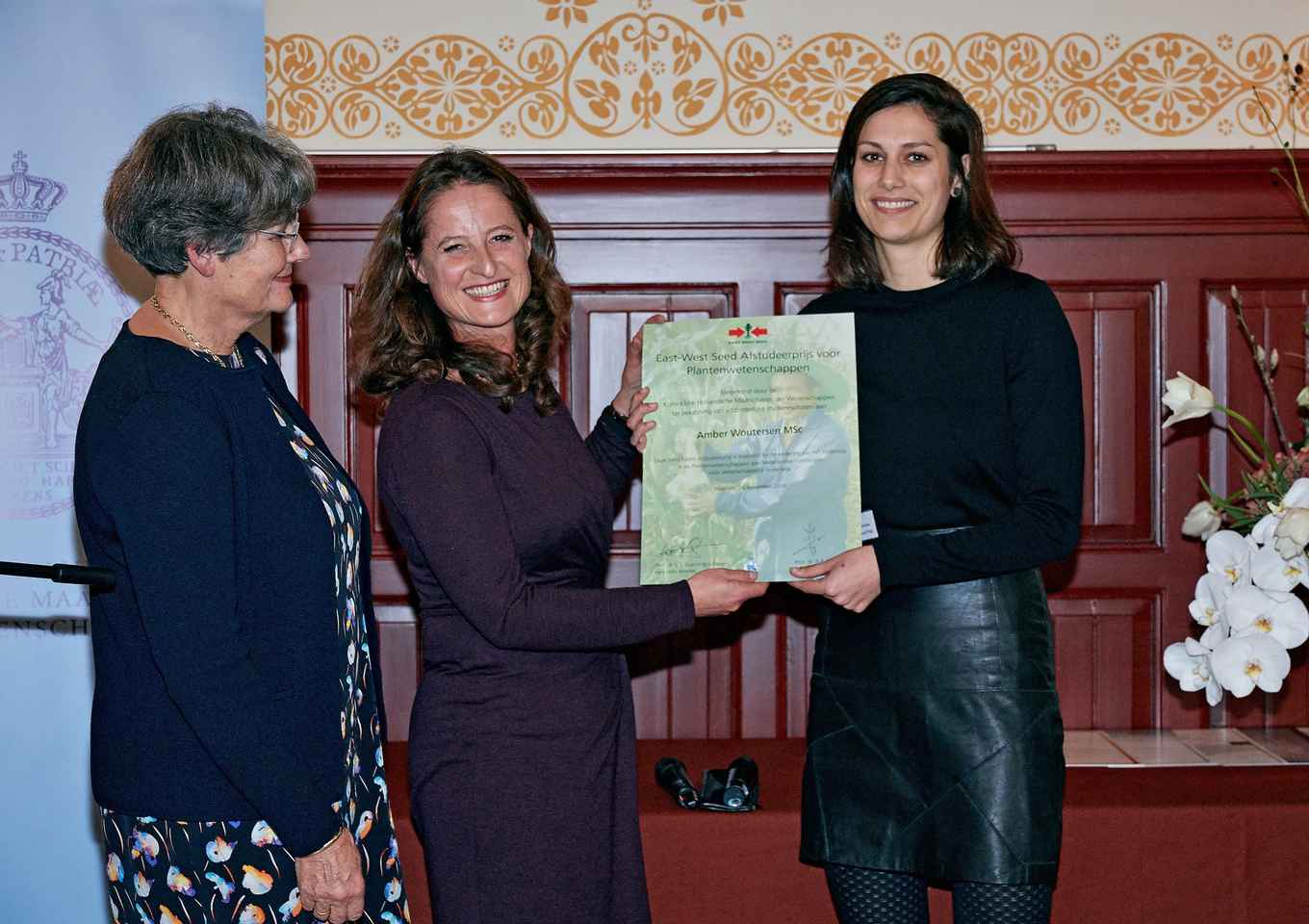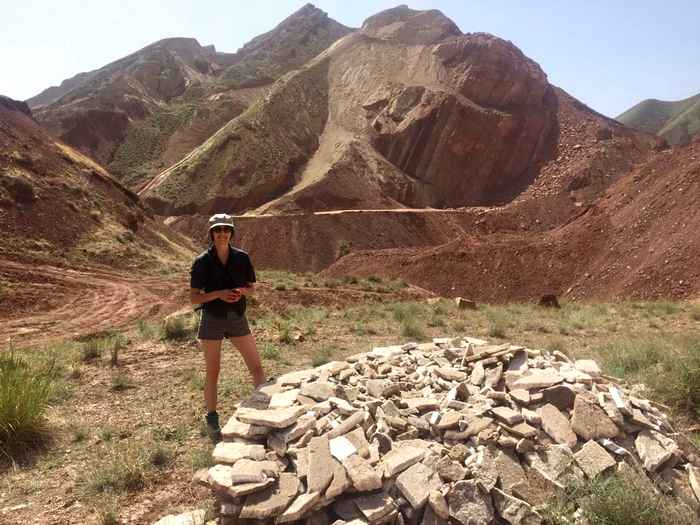Amber Woutersen wins East-West Seed Graduation prize for Plant Sciences
28 November 2018

The main research question of the thesis of Amber Woutersen was how Nitraria, a taxon in the plant family Nitrariaceae, evolved through time. Nitraria grows, amongst other places, on the Tibetan Plateau and is hypothesized to have originated along the coast of the inland Tethys Sea. When the sea retreated, the plant seemingly survived and can still be found in China nowadays. Nitraria provides key records for the inland drying of Asia and can therefore be used to investigate climate change around the time of the India -Asia collision and the formation of the Tibetan Plateau.
Extreme drought
During her MSc thesis project Amber Woutersen combined classical palynological techniques with chemical and molecular data. She found out that Nitraria is a key species in the humid deserts of Central Asia and that it is sensitive to extreme drought. ‘By means of Scanning Electron Microscopy photographs, we were able to assign modern species to fossil specimens, which enables us to further explore the fossil record and the evolution of this plant family,’ says Amber Woutersen.

The findings can relate to climate change in the past and can be used to make implications for climate change in the future. The origins and development of the East Asian steppe are of great interest since they form a tracer of the inland drying of central Asia since the Paleogene.
Young-talent prize
East-West Seed, a tropical vegetable seed company with Dutch roots, awards this young-talent prize to promote stronger interest in the study of Plant Sciences. Dr Carina Hoorn, who is associate professor at the Institute for Biodiversity and Ecosystem Dynamics, was supervising the MSc project of Amber: ‘Amber’s thesis stands out because of the novel approach in studying the history of an important plant family that so far has received little attention. Amber has the vision and ability to work with- and integrate different types of datasets. This makes her an exceptional young researcher and I am delighted that the young-talent prize gives her a boost to further her career in the academic world.’ Amber Woutersen and Carina Hoorn hope to continue the project in the form of a PhD trajectory and are currently busy writing a proposal for a PhD position.